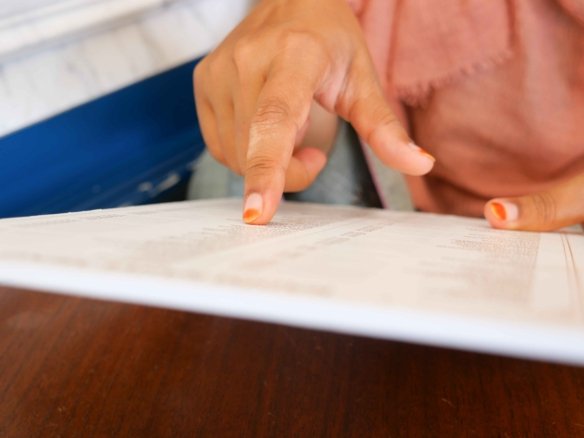Understanding the Basics of Tax Deed Auctions
Before jumping into your first auction, it’s important to grasp how tax deed sales work. Unlike tax lien auctions, tax deed auctions give you ownership of the property itself, not just the lien. This means you could potentially walk away with a real piece of real estate for a fraction of its market value.
Know the Difference Between Tax Lien and Tax Deed Sales
Many new buyers confuse tax lien sales with tax deed sales. Understanding the legal and financial differences can help you avoid costly mistakes. Tax deed sales typically involve more risk but also greater potential reward.
Research the Property Before Bidding
One of the biggest mistakes new investors make is bidding on properties without doing any research. Always check the property’s location, condition, market value, and title issues before placing a bid.
Check for Other Liens or Encumbrances
Even though the tax deed wipes out many debts, some liens may survive the auction. Doing a title search can reveal if there are federal liens, utility liens, or other financial encumbrances that could complicate your ownership.
Visit the Property If Possible
Photos can be misleading, and some properties may not be what they seem online. If local laws allow and it’s safe, drive by the property before the auction. This gives you a better idea of its physical condition and surrounding area.
Understand Redemption Periods in Your State
Some states allow previous owners a redemption period even after the tax deed sale. That means they might still reclaim the property by paying back taxes. Learn your state’s redemption rules so you’re not surprised later.
Set a Budget and Stick to It
It’s easy to get caught up in the excitement of an auction, especially if you’re bidding against others. Set a firm budget ahead of time and avoid emotional bidding. Profit is made when you buy, not when you sell.
Know the Auction Rules and Registration Process
Every county and state has different rules for how their auctions are run. Some are online, others in person. Make sure you understand registration deadlines, payment methods, and bidding procedures before the auction begins.
Understand the Risks Involved
Tax deed investing isn’t risk-free. Some properties are in bad shape, located in rough neighborhoods, or come with legal challenges. Being prepared for these risks helps you make more informed and confident decisions.
Build a Network of Local Experts
Having contacts like real estate agents, title companies, property managers, and contractors can be a huge asset. They can help you evaluate properties, estimate repair costs, and plan your exit strategy.
Check Local Laws and Ordinances
Counties and municipalities may have different codes regarding property maintenance, zoning, or occupancy. Understanding local regulations helps you avoid fines or delays after acquiring the property.
Use Online Auction Platforms Wisely
If you’re bidding online, get familiar with the auction interface in advance. Some platforms allow proxy bidding, while others require real-time clicks. Knowing how the site works can prevent missed opportunities.
Get Your Financing Ready Early
Most tax deed auctions require full payment within a short timeframe—sometimes as soon as 24 to 72 hours after winning the bid. Make sure you have liquid funds or financing lined up beforehand.
Don’t Be Afraid to Walk Away
If a property doesn’t check out after your due diligence, it’s perfectly okay to skip it. There will always be more auctions and more properties. Patience and discipline go a long way in this business.
Learn From Other Investors’ Experiences
Joining forums, attending local REIA meetings, or networking with other tax deed buyers can offer invaluable insights. Learning from others’ mistakes and successes can shorten your own learning curve.
Start With One Property and Scale Up
It’s tempting to dive in head-first and buy multiple properties, but it’s wise to start with one. This helps you understand the full process—from auction to ownership to resale—without being overwhelmed.

Keep Good Records and Stay Organized
Once you win a property, there’s a lot of paperwork involved. Keep detailed records of payments, deeds, correspondence, and timelines to stay on top of your investment.
Factor in Holding and Rehab Costs
Even if you win a property at a great price, you may need to spend money to clean, repair, or legally take possession of it. Factor in these additional costs when calculating your expected return.
Have an Exit Strategy Before You Buy
Are you planning to flip the property, rent it out, or hold it long-term? Having a clear plan from the beginning helps guide your research and bid strategy.
Consider Buying Through an LLC or Entity
For liability and tax purposes, it might be smarter to buy through a business entity rather than your personal name. Consult a real estate attorney or CPA to explore your best options.
Don’t Rely on County Descriptions Alone
Sometimes the county’s description of a property may be outdated or incorrect. Verify the parcel details yourself through satellite images, GIS maps, or third-party data providers.
Beware of Landlocked or Unusable Parcels
Occasionally, tax deed auctions include tiny slivers of land or landlocked parcels with no legal access. Always check for legal road access and zoning restrictions before placing a bid.
Understand the After-Auction Process
Winning the auction is just the beginning. You’ll need to go through the deed recording process, possibly clear the title, and prepare the property for your intended use. Know what’s next so you don’t get stuck.
Learn How to Quiet the Title if Needed
Some tax deed properties come with a “clouded” title, which makes resale or refinancing difficult. In such cases, a quiet title action through the courts may be necessary. Learn how it works and what it costs.
Leverage Tools and Technology for Due Diligence
Use property data software, satellite imagery, foreclosure databases, and title search tools to evaluate properties thoroughly. The more data you have, the better your decision-making.
Avoid Bidding Wars on Hot Properties
If a property seems too good to be true, it’s probably drawing lots of attention. Bidding wars can drive prices above market value, defeating the purpose of buying at auction.
Practice on Mock Auctions
Many auction sites offer demo versions or past auction archives. Practice bidding in a mock environment to get comfortable before going live with real money.
Partner With More Experienced Investors
If you’re unsure about going solo, consider partnering with someone more experienced. You can learn hands-on while splitting costs and reducing your risk.
Stay Patient and Persistent
The first few auctions may not result in a win—or you might make mistakes. Stick with it, keep learning, and improve your process with each attempt.






Join The Discussion